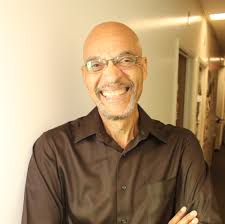During his trip to South Africa, President Obama
graciously and reverentially praised Nelson Mandela as a leader who inspired people around the world and that included himself. This was more than just praise for one of the
planet's most respected leaders, the man Obama called by his traditional tribal
(and affectionate) name Madiba. He also accurately noted that Mandela was a
driving force in the freedom struggle against apartheid and the post-apartheid struggle
for democratic, non-racial rule in South Africa. Obama's heartfelt remarks
about Mandela have been part of the consistent U.S. government's narrative
about Mandela since the official dumping of apartheid in 1990 and black
majority rule in 1993.
But the embrace of
Mandela and the reality of black majority rule in South Africa have come at a
steep price. The price was the U.S. government's decades old assault on Mandela's
character and leadership. The malign treatment by the U.S. of Mandela didn't end
with his release from prison in 1990, the official unbanning of his African
National Congress, or even his becoming the first democratically elected
President of South Africa in 1993. It didn't end when he took the rare, tactful
and universally praised step of stepping down from the presidency in 1999 after
one term. It didn't even end as then Democratic presidential candidate Obama in
2008 inched close to his election as America's first African-American president.
The U.S.
government still continued to brand Mandela a terrorist and the ANC a terrorist
organization. This ridiculous tag on Mandela as a terrorist chilled U.S.
relations with Mandela and the South African government even after the power
takeover. The chill began with the Reagan administration's well-documented
fierce resistance to the demand that corporations and non-profits divest their
financial investments in South Africa, and the administration's refusal to
support UN and international trade sanctions and an arms embargo against
South Africa. The Reagan administration's line was that the ANC was Cuban
backed and posed a communist threat to South Africa and by extension U.S.
investments. Mandela by then was well into his second decade in prison on
Robbins Island, posed no threat to the South African government, and had no direct
say in the political or military operations of the ANC. Yet he was still
regarded by the Reagan administration as a dangerous subversive. Mandela's
release from prison, the recognition by the apartheid government of the ANC,
and his subsequent presidential election changed little, except the terminology
of how Mandela was tagged. This dovetailed with the U.S.'s shift to the global
fight against terrorism. Mandela instead of being a communist and a subversive
simply had the terrorist label slapped on him. Though Regan had dumped him and
the organization on the terrorist watch list in the 1980s and it stood unchallenged
during those years. It took a concerted effort by civil rights activists and many
congressional Democrats to end the political targeting of Mandela. But it was
not a slam dunk. As late as 2007, ANC officials, and that included Mandela, who
sought to travel to the U.S. still had to get a State Department waiver or
special certification in order to enter the country. Mandela had to get that
even for his White House visit with George W. Bush in 2005.
The issue finally came to a head that year when Barbara Masekela, the former South African ambassador to
the United States, was denied a visa to visit a dying cousin in the United
States. A chagrined Secretary of State Condoleezza Rice called it
"embarrassing." In April, 2008, she
urged Congress to remove Mandela and the organization from the terrorist watch list
With a big prod from the
Congressional Black Caucus, Congress finally voted to remove the now 90 year
old (and Nobel Prize winner in 1993) Mandela and ANC from the U.S. government's
official terrorist watch list. But even the language of the bill that removed
him from the list was hardly a full throated, ringing praise of the ANC and
Mandela, or a disavowal of the disgraceful history of his treatment. It did not
acknowledge the towering role and stature of Mandela in the fight for justice.
It simply said that it would add the ANC to a list of groups that should not be
considered terrorist organizations. The closest Congress came to repudiating
the official maltreatment of Mandela was then Massachusetts Senator John Kerry's
retort that it was "a great shame" that his name was on the watch list. Rice,
for her part, followed this and called Mandela "a great leader."
Bush promptly signed the
bill in July, 2008 after Senate passage. This seemingly closed the book on not
a 20 year but the forty year branding of Mandela as a political pariah by the
US government. This vicious legacy left a deep scar of suspicion and doubt, and
distance from South Africa's government leaders, and colored relations between the
governments that hasn't ended even today as the U.S. and the world publicly
celebrate Madiba's colossal place in history.
Earl Ofari Hutchinson is an author and political analyst. His
new ebook is America on Trial: The
Slaying of Trayvon Martin ( Amazon ).
He is an associate editor of New America Media. He is a weekly co-host of the
Al Sharpton Show on American Urban Radio Network. He is the host of the weekly
Hutchinson Report on KTYM 1460 AM Radio Los Angeles and KPFK-Radio and the
Pacifica Network.
Follow Earl Ofari Hutchinson on Twitter:
http://twitter.com/earlhutchinson




